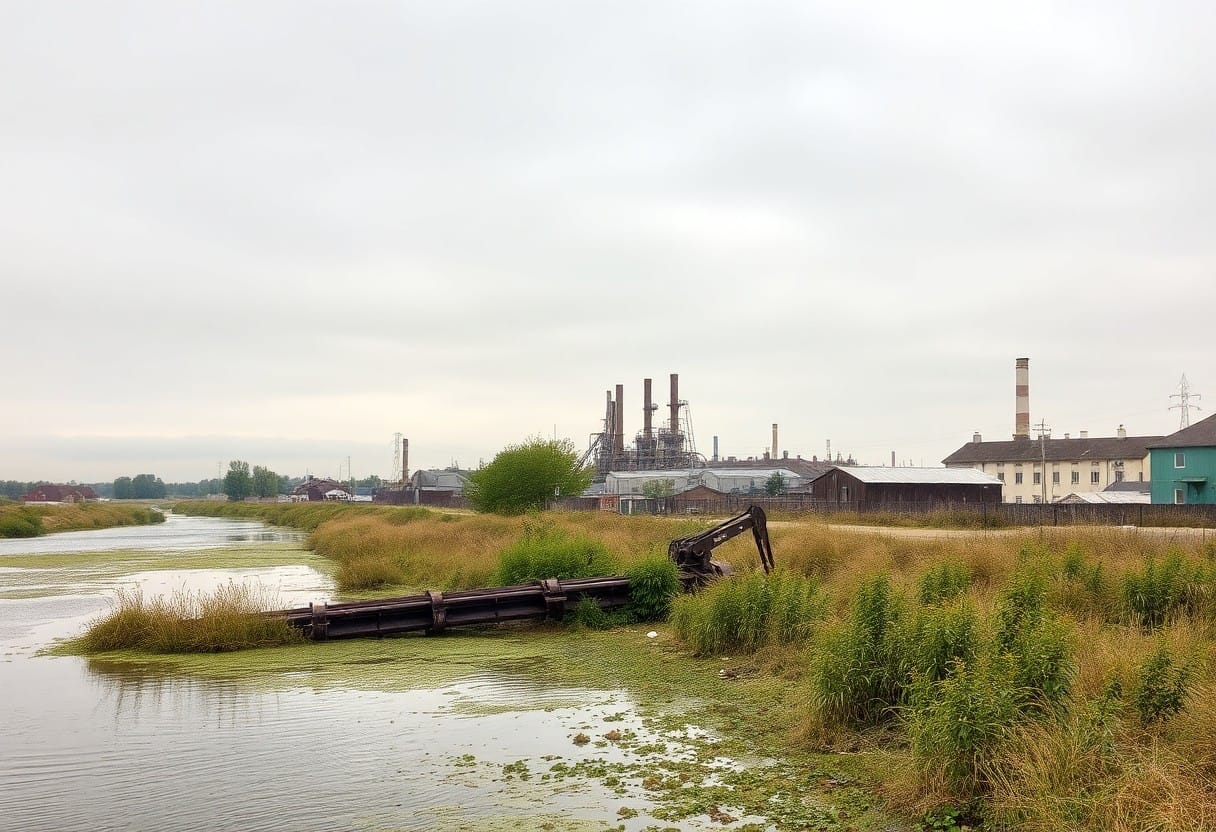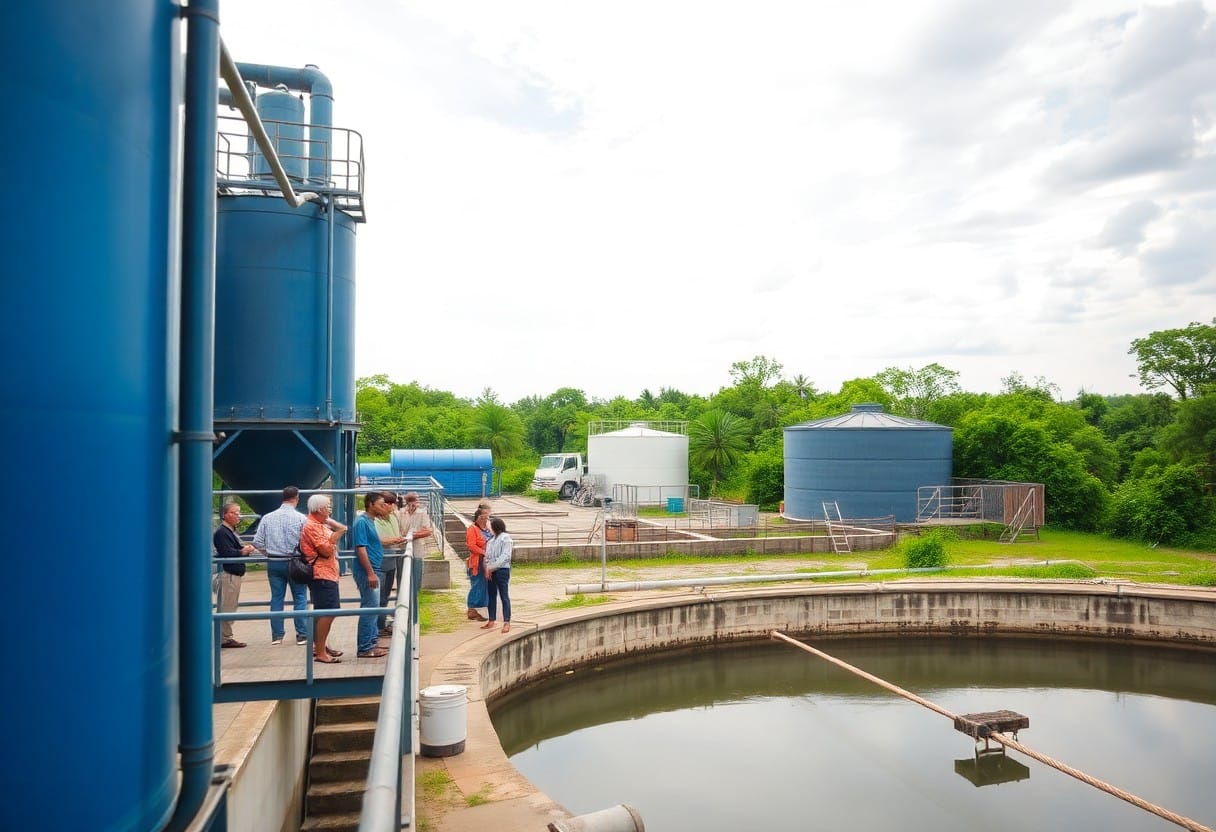Chemours has had a significant impact on the environment surrounding Fayetteville, raising serious concerns about pollution and public health. For years, you may have been affected by the presence of harmful chemicals like per- and polyfluoroalkyl substances (PFAS) in your water supply, leading to a demand for accountability and remediation. Your community’s struggle for clean water has made headlines, and you can explore the summary of cfpua actions against chemours and dupont to understand the legal battles that have ensued. It’s necessary to stay informed about this ongoing issue that affects your health and environment.
Historical Overview
For decades, the town of Fayetteville has grappled with significant environmental challenges tied to industrial practices. This chapter explores the historical trajectory of the Chemours facility and its effects on the local community, providing crucial context for understanding the ongoing struggles surrounding pollution and environmental negligence in the region.
Establishment of Chemours
After Chemours was established in 2015 as a spin-off from DuPont, it rapidly became a major player in the chemical manufacturing industry. With its focus on producing specialty chemicals, Chemours settled in Fayetteville, presumably to capitalize on the area’s resources and infrastructure.
Early Environmental Impact
Early environmental assessments indicated that the operations of Chemours began to affect the air and water quality in Fayetteville. You may be surprised to learn that the manufacturing processes emitted high levels of perfluorinated compounds (PFCs), which are linked to serious health risks.
Further investigations revealed widespread contamination in nearby water sources, affecting both drinking supplies and local ecosystems. The presence of hazardous substances posed risks including cancer, hormonal disruption, and other severe health issues. These early environmental impacts not only raised alarms but also set the stage for communities to fight for accountability and demand necessary changes to protect their health and environment.
Chemical Production Processes
You will find that Chemours has been involved in producing a wide array of chemicals imperative for various industries. These production processes have contributed significantly to the local economy but have also raised environmental concerns due to the emissions and disposal methods used.
Overview of Chemicals Produced
Beside the well-known fluoropolymer manufacturing, Chemours produces numerous specialty chemicals, including titanium dioxide, a vital component in paints and coatings, and Teflon, used in non-stick cookware. Their diverse portfolio reflects a booming industry that also impacts the community.
Waste Management Practices
Among the practices employed by Chemours, waste management has been a contentious issue involving the treatment and disposal of hazardous materials. The effectiveness of these practices directly affects both the local environment and public health.
Plus, Chemours has been criticized for its inadequate waste management practices, especially concerning the handling of harmful byproducts from production processes. Incidents of toxic releases into the air and waterways have raised alarms among residents and environmental advocates. Despite implementing some strategies for waste reduction and treatment, the long-term impacts of previous practices and the continuing potential for contamination necessitate ongoing scrutiny and improvement for the safety of your community. The responsiveness of the company to these challenges remains a key factor in public perception and environmental sustainability in Fayetteville.
Regulatory Environment
Some of the regulation frameworks governing Chemours in Fayetteville have shifted over the years, reflecting the growing concern over environmental and public health issues. This has led to increased scrutiny of the company’s practices, prompting a need for compliance with stricter guidelines aimed at mitigating pollution while promoting sustainability in the area.
Local and Federal Regulations
By examining the local and federal regulations, you can appreciate how they interact to regulate industrial activities. Both tiers of government have established rules to monitor emissions and waste disposal, but the effectiveness of these regulations often depends on enforcement and adherence by companies like Chemours.
Compliance Issues
At times, Chemours has faced significant compliance issues regarding its operational activities in Fayetteville, leading to allegations of pollution and environmental negligence. These problems highlight the challenges in ensuring that regulations are followed and enforced adequately.
Regulations around pollution management are intended to protect both the environment and public health, yet non-compliance by Chemours raises serious concerns. Frequent reports of hazardous waste disposal practices and toxic emissions point to significant violations of local and federal standards. The lack of strict enforcement can allow such issues to persist, negatively impacting community health and the surrounding ecosystem. As a concerned citizen, you should advocate for more robust regulatory measures to ensure accountability and safeguard Fayetteville’s environment.
Community Impact
Once again, the residents of Fayetteville are grappling with the impact of industrial pollution. The legacy of Chemours has left many questioning their health and environment, as seen in reports by Producers of “Forever Chemicals” Knew They Were Toxic, …. Community voices raise alarms about the long-term consequences of toxic exposure, creating a growing sense of urgency for accountability and remediation.
Health Concerns
Before examining the economic implications, it is vital to understand the alarming health risks associated with chemical exposure in Fayetteville. Residents have reported increased incidences of certain cancers, reproductive issues, and other chronic health conditions linked to PFAS contamination. These health concerns are more than statistics; they affect your family, friends, and neighbors, warranting immediate attention and action from authorities.
Economic Implications
Around Fayetteville, the economic impact of pollution has been profound. The local economy relies heavily on agriculture and tourism, both threatened by soil and water contamination. Property values have also suffered, forcing residents to bear the burden of a declining market while grappling with the health risks posed by PFAS.
Health risks associated with pollution extend to economic ramifications that you might not have anticipated. The presence of PFAS can lead to decreased property values, as potential buyers hesitate to invest in contaminated areas. Additionally, local farmers face reduced crop yields and potential market rejection due to safety concerns, impacting your community’s livelihood. As the demand for clean and safe environments grows, businesses that fail to adapt could suffer from long-term repercussions, emphasizing the interconnectedness of health and economic stability in your area.
Environmental Remediation Efforts
Your understanding of the environmental remediation efforts surrounding Chemours and Fayetteville is vital in grasping how communities can tackle pollution. Over the years, multiple initiatives have been launched to address contamination, aiming to restore impacted areas and protect public health. These efforts involve both state and federal agencies working alongside local organizations to ensure that remediation processes are effective and transparent.
Cleanup Initiatives
Remediation initiatives have focused primarily on cleaning up the facilities and surrounding areas heavily impacted by pollutants. This involves methods such as soil excavation, groundwater treatment, and the monitoring of hazardous substances to mitigate risks. Your support and participation in community meetings can enhance these processes and ensure accountability among stakeholders.
Ongoing Challenges
After the initial cleanup efforts, many challenges remain, particularly concerning the lingering effects of pollution on the local ecosystem and residents’ health. Addressing contaminated groundwater and ensuring long-term safety for the community is important.
To navigate these ongoing challenges, you should be aware that monitoring efforts must continue to assess the actual impact of cleanup activities. New contaminants may emerge, undermining previously established victories in environmental health. Additionally, you might encounter pushback from industries resistant to change, emphasizing the need for constant advocacy and community engagement. Remaining informed will empower you to hold responsible parties accountable and contribute to ensuring a healthier environment for future generations.

Community Response and Activism
All across Fayetteville, residents have united to confront the alarming pollution issues stemming from Chemours. This community response reflects a passionate commitment to holding the corporation accountable, demanding transparency, and advocating for environmental justice. Through organizing meetings, forming coalitions, and raising awareness, you play an vital role in amplifying the local voices that seek change and protection for your community.
Grassroots Movements
One of the most powerful aspects of the response to Chemours’ impact has been the development of grassroots movements. These informal yet determined groups, comprised of concerned citizens, have mobilized to spread awareness, distribute information, and foster unity among residents who are affected by pollution.
Role of Local Organizations
Around Fayetteville, various local organizations have emerged as key players in the fight against pollution. They provide vital resources, organize events, and engage community members in discussions about environmental health. Your participation in these organizations can significantly influence the direction of advocacy efforts and result in meaningful changes.
The local organizations in Fayetteville have become vital allies in the activism against Chemours, facilitating community dialogue and education on the effects of chemical contamination. Through partnerships with environmental advocates, they offer vital information and support to affected individuals, empowering you to take actionable steps in addressing the pollution crisis. By fostering a collective voice, these groups harness your community’s strength, advocating for stricter regulations and demanding accountability for the dangerous practices that have jeopardized your health and environment.
Conclusion
The history of Chemours and Fayetteville reveals a pattern of pollution and neglect that has affected the environment and your community. Understanding this relationship is necessary for you as a resident and advocate for your surroundings. By being informed about the past and its implications, you can engage in meaningful conversations and actions that promote accountability and ensure a safer, healthier environment for future generations.


















